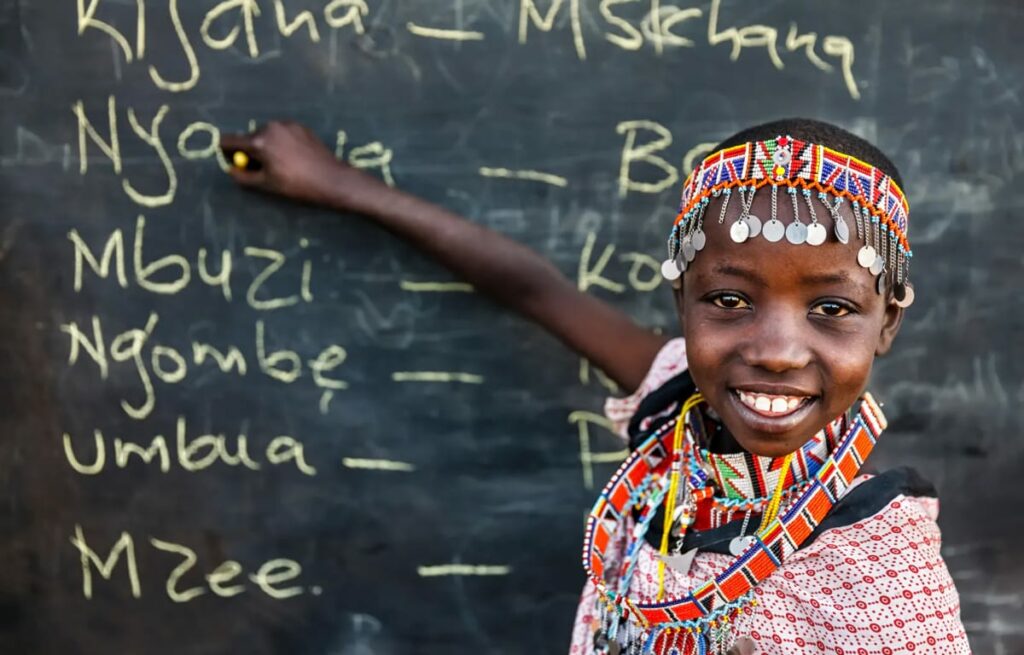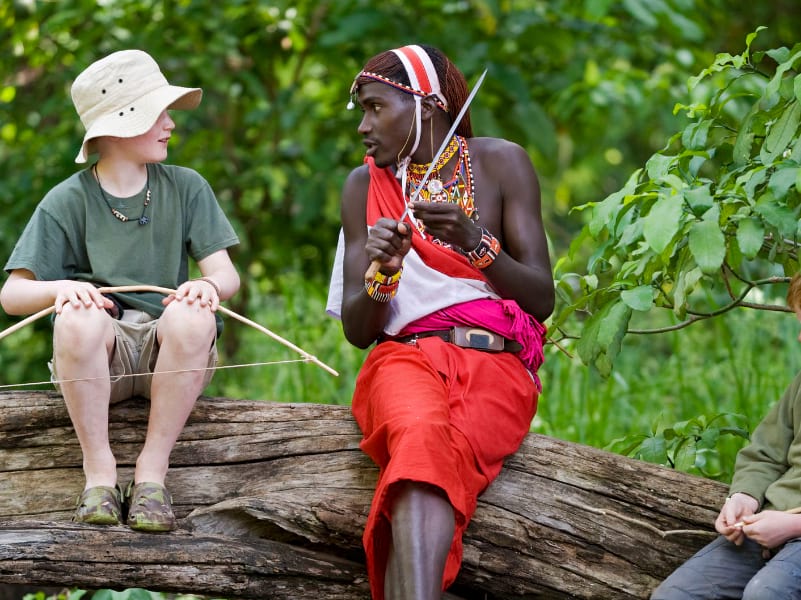
Before visiting a foreign country like Swahili, understanding the native language and learning a few essential words are some of the most important items to pack in your bag. The good news? It doesn’t have to add any extra weight to your luggage allowance!
Whether you wish to carry a small phrasebook or learn a few essential phrases and everyday vocabulary beforehand, knowing a little bit of the language can enable you to get around the new country without difficulty. It can further enhance your holiday experience, allowing you to take a truly authentic trip.
Want to learn Swahili for your upcoming vacation in Tanzania? Hakuna Matata! (No Worries!) We are happy to help you out.
The Bantu language of Swahili, also known as Kiswahili, is spoken on the east coast of Africa in a region that stretches from Lamu Island, Kenya, in the north to Tanzania’s southern border in the south.
The history of the language itself is ancient. It has, however, changed into the form we hear today, like with all languages. It is a fusion of native African tongues and Arabic, English, Portuguese, and German influences.
According to some, English speakers can learn Swahili the quickest of any African language. Like English, it is one of the few sub-Saharan African languages without lexical tones. Reading Swahili words out loud in their same written form makes it much simpler to read. Before your trip, you can practice the language by:
Now that you have a basic understanding of the Swahili language’s history let’s study some essential vocabulary and phrases to prepare for your upcoming safari!
| Greetings/Question | Response |
|---|---|
| Hujambo – Hello | Sijambo – I am fine |
| Jambo – Hi! | Jambo! – Hi! |
| Mambo vipi? – How is it going? | Nzuri – Good/I’m fine |
| Habari gani? – How are you? | Nzuri – Good/I’m fine |
| Habari za asubuhi – Hello/Good Morning (more respectful) | Mbaya – Bad/not great Si Mbaya or Sio Mbaya – Not too bad |
| Kwaheri – Goodbye | Kwaheri – Goodbye |
| Baadae – See you later | Baadae – See you later |
| Greetings/Question | Response |
|---|---|
| Jina lako Nani? – What is your name? | Jina langu ni… – My name is… |
| Unatoka wapi? – Where are you from? | Natokea… – I’m from… |
| Nimefurahi kukuona – Nice to meet you | Na Mimi pia – me too |
| Ndiyo | Yes |
| Hapana | No |
| Asante | Thank you |
| Hapana Asante | No, Thank you |
| Tafadhali | Please |
| Samahani | Excuse me |
| Hamna Shida | No worries |
| Pole | Sorry |
| Poa | Cool |
| Karibu | Welcome |
| Ngoja | Wait |
| Sielewi | I don’t understand |
| Choo | Toilet |
| Bafu | Bathroom |
| Ninasikia Njaa | I’m hungry |
| Chakula | Food |
| Nina Kiu | I’m thirsty |
| Maji ya Kunywa | Drinking water |
| Daktari | Doctor |
| Hospitali | Hospital |
| Unaongea Kiingereza | Do you speak English? |
| Unasemaje | How do you say… |
| … ni wapi? | Where is the…? |
| Ni shingapi? | How much is it? |
| Tafadhali, naomba msaada | Can you please help me? |
| Naomba kupiga Picha | May I take a Picture? |

| Leo | Today |
| Kesho | Tomorrow |
| Jana | Yesterday |
| Sasa | Now |
| Baadae | Later |
| Saa ngapi | At what time? |
| Ni saa ngapi | What time is it? |
| Kaskazini | North |
| Kusini | South |
| Mashariki | East |
| Magharibi | West |
| Mbele | Front |
| Nyuma | Back |
| Kulia | Right |
| Kushoto | Left |
| Juu | Up |
| Chini | Down |
| Tembo | Elephant |
| Nyati | Buffalo |
| Simba | Lion |
| Kifaru | Rhino |
| Chui | Leopard |
| Twiga | Giraffe |
| Duma | Cheetah |
| Kiboko | Hippopotamus |
| Fisi | Hyena |
| Ngiri | Warthog |
| Nyumbu | Wildebeest |
| Pundamilia | Zebra |

Once you go through this list, you’ll have some basics down. Don’t worry, most of the locals here know enough English so that you won’t be completely stranded. Any member of our team, including your safari guide, will be pleased to teach you anything else you want to know.
Our Miracle Experience team would like to wish you safari njema (safe travels) for your upcoming trip to Tanzania!


